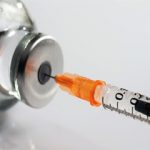Exposure & Treatment Factors
Per standard recommendations, anyone known to be exposed to the measles virus who does not have evidence of immunity due to their age, vaccine records or laboratory findings should receive either the MMR vaccine within 72 hours or immunoglobulin (IG) within six days. For patients unable to receive the vaccine due to concurrent immunosuppressive regimens, immunoglobulin is recommended, although it provides no long-term protection. Patients should receive supportive care, because there is no available anti-viral treatment.1 Dr. Winthrop notes that if he were managing a patient infected with or exposed to measles, it would be reasonable to stop immunosuppression until they recover.
Dr. Calabrese says immunocompromised patients (such as those on biologics) may be expected to have higher risk of complications from measles, as they would with any infection.
She adds that if there is a worry about a measles infection, it’s important such patients not be seen in your waiting room. Any measles patients should be isolated as quickly as possible to minimize disease spread, and the suspected measles case should be reported to the local health department. Dr. Calabrese explains, “In New York for example, there are facilities equipped to take people into isolated and quarantined rooms to evaluate them. Your patients should call you and discuss, and depending on the state that you are in, go from there.”
Vaccine Assessment
A question remains about the necessity of checking for measles immunity via IgG prior to starting a biologic. Current guidelines do not make any recommendations to check immunity via IgG before starting biologics, due to lack of evidence for need.7
Dr. Calabrese notes, “If I were practicing in an area of active measles outbreak, I would probably be more proactive at making sure [patients’] immunization records were up to date, and if not, checking their serology.” However, she adds that in a non-outbreak area with a low-risk patient, she would not necessarily move to vaccinate someone with MMR before starting biologic treatment. Current IDSA guidelines recommend administering all recommended live vaccines at least four weeks before initiation of treatment.8
‘It would never be wrong to check if someone can’t find their immunization records. If [their IgG] is low, you can vaccinate them.’
—Dr. Calabrese
Dr. Calabrese emphasizes the need to discuss and assess appropriate immunizations at every visit, including measles. It’s important to keep in mind, however, that in spite of recent outbreaks, measles remains much less common in developed countries than other important viruses, such as influenza. The killed vaccines for pneumococcal pneumonia and influenza can both be taken by people taking disease-modifying anti-rheumatic drugs or biologics per standard CDC recommendations.7
“Certainly, there are some challenges if your immunocompromised population does need the MMR,” concludes Dr. Calabrese. “Fortunately, practitioners will find that most of their patients have been vaccinated against measles. The outbreaks are largely fueled by children that are not vaccinated for a variety of reasons. But it’s certainly important to make sure that our patients are protected.”
Adds Dr. Winthrop, “I suspect we are probably going to have more and more measles, at least for the next few years, until we get the vaccination levels higher.”


